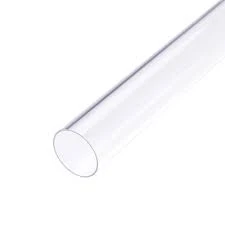ruj . 28, 2024 04:43 Back to list
Understanding the Benefits and Applications of Perforated PVC Pipe in Drainage Systems
The Versatility of Perforated PVC Pipe An Essential Component in Modern Infrastructure
In the realm of construction and infrastructure development, the choice of materials plays a critical role in the efficiency and sustainability of projects. One such material that has gained significant traction in recent years is perforated PVC (polyvinyl chloride) pipe. This versatile product has become an essential component in various applications, thanks to its unique properties and functionalities.
What is Perforated PVC Pipe?
Perforated PVC pipe is a type of plastic piping that features small holes or perforations along its length. These holes allow water and air to flow in and out of the pipe, making it ideal for drainage applications. Unlike solid PVC pipes, which are typically used for conveying fluids under pressure, perforated pipes are designed to manage the movement of water, whether it's for agricultural, residential, or environmental purposes.
Applications of Perforated PVC Pipe
One of the most common applications of perforated PVC pipes is in drainage systems. They are widely used in agricultural fields to improve soil drainage, thus preventing water logging and promoting healthy crop growth. By allowing excess water to drain away, these pipes help maintain optimal soil moisture levels, which is crucial for plant health.
In residential settings, perforated PVC pipes are often employed in septic systems and leach fields. They play a vital role in the process of wastewater management by facilitating the dispersion of effluent from septic tanks. The perforations allow for the discharge of treated wastewater into the surrounding soil, enabling natural filtration and reducing the risk of contamination.
perforated pvc pipe

Moreover, perforated PVC pipes are beneficial in stormwater management systems. They can be used in conjunction with other drainage solutions to alleviate flooding and prevent soil erosion. By directing excess rainwater away from impervious surfaces, such as roads and rooftops, these pipes help protect the integrity of landscapes and infrastructures.
Benefits of Perforated PVC Pipe
The advantages of using perforated PVC pipes extend beyond their functional capabilities. First and foremost, they are lightweight and easy to handle, which reduces labor costs during installation. Unlike traditional materials like concrete or metal, perforated PVC pipes do not corrode, making them extremely durable and long-lasting. This resistance to corrosion also translates to lower maintenance costs over time.
Additionally, perforated PVC pipes are economical. Their manufacturing process is efficient, and they are relatively inexpensive compared to alternatives like clay or metal pipes. Their versatility means they can be utilized in a variety of systems without the need for extensive modifications.
Furthermore, environmental considerations are increasingly important in today’s construction practices. Perforated PVC pipes contribute to sustainable development by promoting effective water management practices, reducing the risk of flooding, and protecting water quality.
Conclusion
The use of perforated PVC pipe has become a cornerstone of modern infrastructure and environmental management. Its diverse applications—from agriculture to residential drainage systems—coupled with its durability and cost-effectiveness, make it an invaluable resource. As we continue to grapple with challenges related to water management and sustainability, the importance of materials like perforated PVC pipe cannot be overstated. Whether in a rural landscape or an urban setting, these pipes are instrumental in fostering sustainable practices and ensuring a resilient infrastructure for future generations.
-
Premium PVC Soft Sheets: Clear, Flexible & Durable
NewsAug.12,2025
-
Premium PVC Round Rods: Durable, Chemical Resistant, Easy to Machine
NewsAug.11,2025
-
PP U-channel: Chemical-Resistant, Lightweight & Durable
NewsAug.10,2025
-
Transparent PVC Pipe: Clear Flexible Tubing for Fluids
NewsAug.09,2025
-
Durable PP Rigid Sheet: Versatile & High-Quality Plastic Panels
NewsAug.08,2025
-
Premium Glossy PP Rigid Sheet – Durable & Versatile
NewsAug.07,2025

